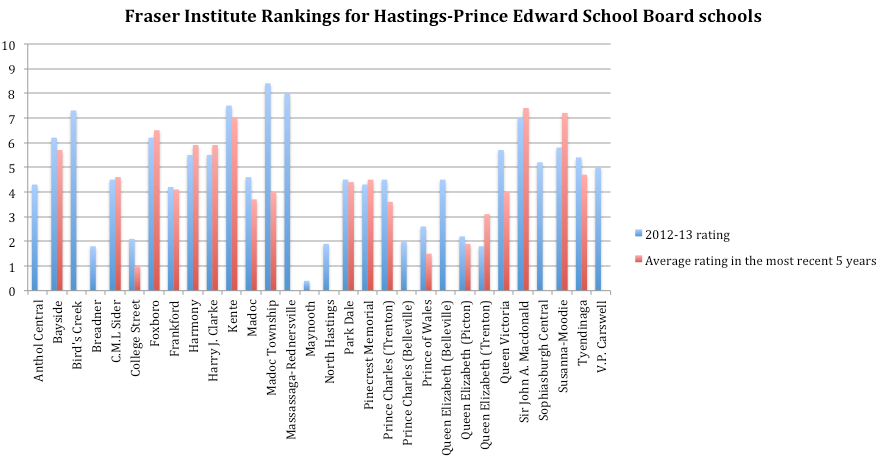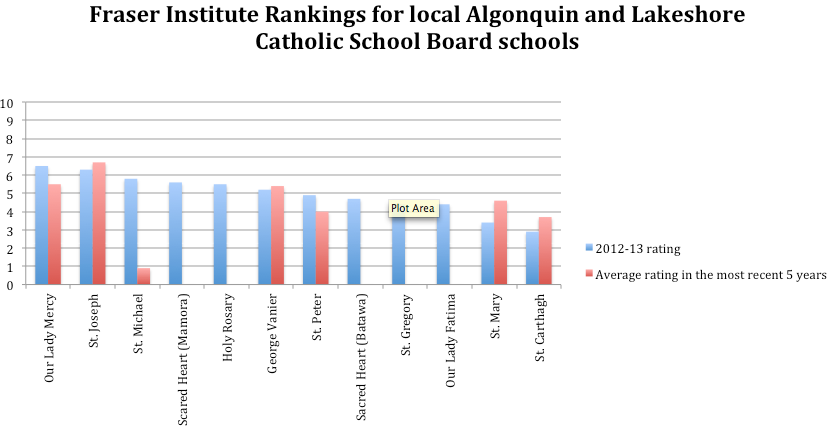Local school boards ignoring national school rankings
By Shelby Wye
BELLEVILLE – The Hastings and Prince Edward School Board says it will ignore a school-rankings report released this week.
Kerry Donnell, the board’s communications officer, said parents should understand that the Fraser Institute’s annual rankings of Ontario schools are not a good indicator of school quality.
The Fraser Institute is a conservative public-policy analyst based in Vancouver. Its rankings of Ontario schools are based on the results of standardized provincial testing of students in Grades 3, 6, 9 and 10. The exams assess students’ skills in reading, writing and mathematics.
“There’s no evidence to show that ranking schools improves student learning,” Donnell said. The board feels that the rankings aren’t a fair representation of everything schools have to offer, she added.
What schools are about, she said, is “putting programs and services into place to help each student achieve their full potential and be successful.”
Donnell said Monday she hadn’t even checked the Fraser Institute rankings.
Dave Henderson, president of Hastings-Prince Edward district of the Elementary Teachers’ Federation of Ontario, said the standard tests sample a small set of students’ skills. Teachers’ unions don’t feel that the tests give an accurate snapshot of the overall skills students have learned, Henderson said.
The federation is planning on not addressing the Fraser Institute report, and is glad to hear that the school board is taking a similar position, he said.
The Algonquin and Lakeshore Catholic School Board’s response to the rankings is similar to that of the public board. “It is our belief that the report does not provide a complete picture of how well our schools are serving our students,” says a prepared statement by Jody DicRocco, the board’s director of education.
But Fraser Institute spokesperson Peter Cowley said the rankings are important for the public to know. He agrees that students are learning skills outside of what the standardized testing reports, he said, but added that he is curious as to why none of the other skills that teachers feel are important have been tested.
“In the 15 years that these rankings have existed, why has there been no other test or ranking created that comprises the data of (other skills) teachers say are important?” Cowley said, citing citizenship and willingness to learn as examples. He often hears that there’s no possible way to measure these skills, but believes that is an act of willful ignorance, he said.
“These teachers and school boards are more worried about their pension than they are with improving education. It’s pathetic. The minister of education could tomorrow require the schools to develop and collect data that reflect the schools’ abilities in other areas, but she hasn’t.”
The Fraser Institute has been in talks with the Ministry of Education for years to try to convince it to gather data to test such other skills, but with no success, he said.
Henderson and Donnell both said the Fraser Institute is misusing the information that the standardized=test results provide.
“It ends up, in the lower-ranking schools, the staff and students are demoralized by those scores,” said Henderson.
Donnell said that the focus of Hastings and Prince Edward School Board is “supporting student achievement and student well-being – so that will be where we put our efforts.”
 Print This Post
Print This Post








